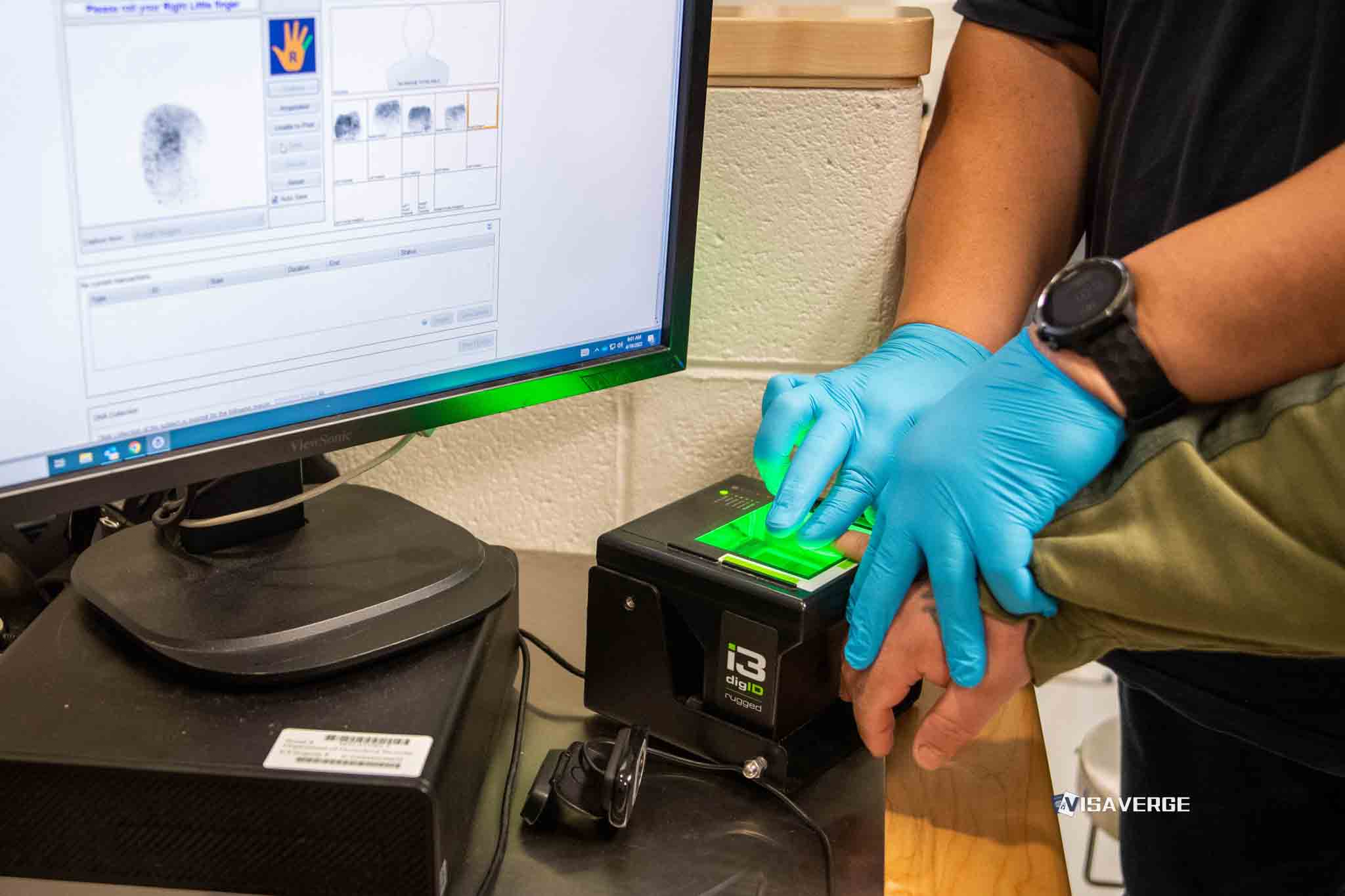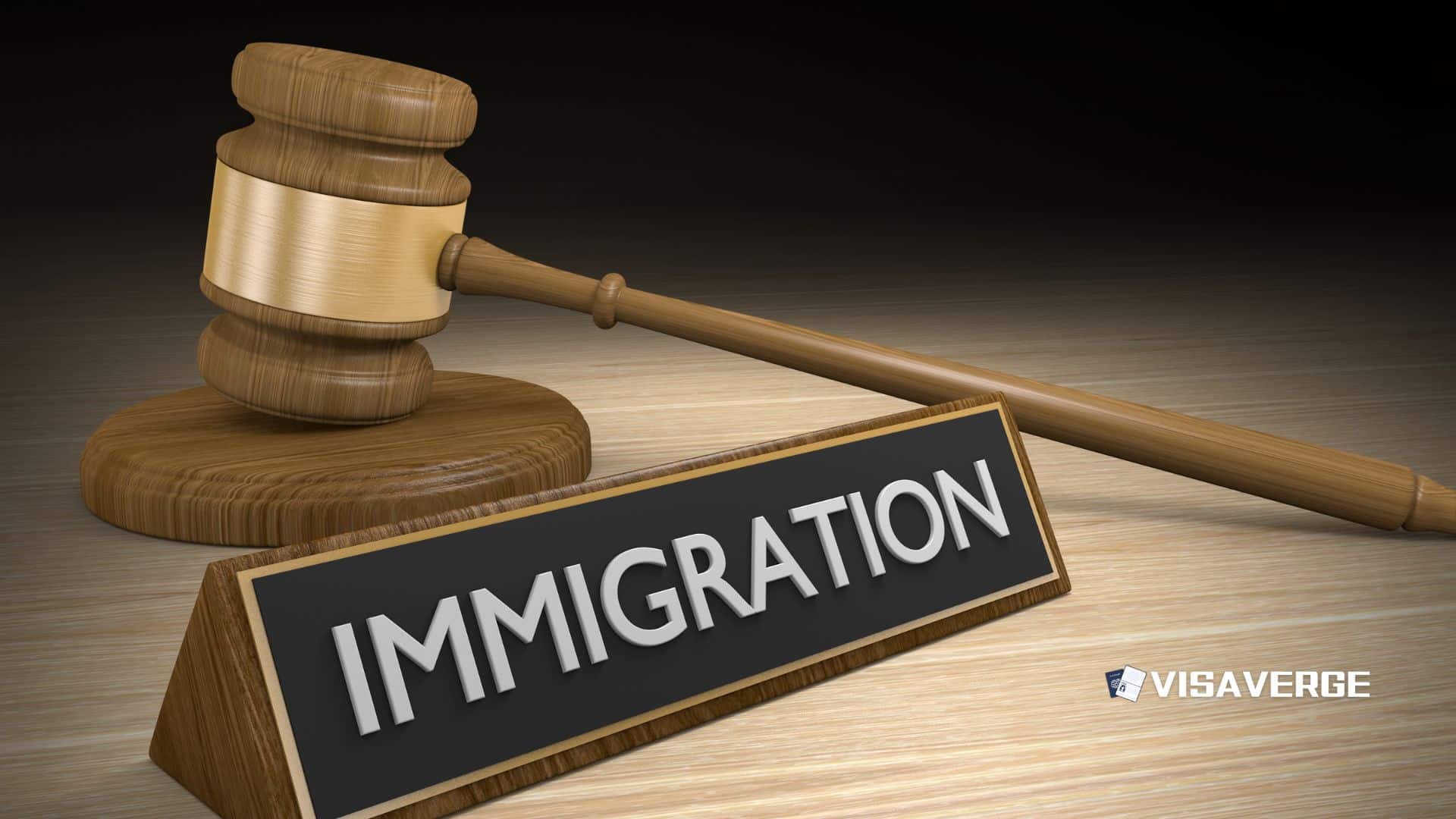(INDIA) India is preparing to deport about 16,000 foreign nationals detained for alleged involvement in narcotics trafficking, according to multiple government sources and recent news reports. The Ministry of Home Affairs is steering the effort under the new Immigration and Foreigners Act, 2025, which took effect on September 2, 2025, and replaces four earlier immigration laws. Officials say the first phase will focus on foreign nationals already in detention, many of whom were arrested by the Narcotics Control Bureau (NCB) or state police units for drug-related crimes under the Narcotic Drugs and Psychotropic Substances (NDPS) Act, 1985.
According to analysis by VisaVerge.com, the scale of this operation stands out in Asia, both for its legal basis and for the speed at which authorities aim to carry it out.

Government goals and rationale
The government’s stated goal is to remove non-citizens involved in organized drug crime while tightening border controls and protecting public safety. Senior officials argue that illegal entry and overstay strain services and can let non-citizens tap benefits meant for Indian residents.
Under the new statute, those who entered with forged or invalid documents face tougher penalties, and deportation can move faster once identity and legal status are confirmed. Officials describe the plan to deport 16,000 foreign nationals as part of a wider push against transnational drug networks that, in their view, feed street-level supply and fuel money laundering.
Legal framework — two pillars
- NDPS Act (1985): India’s main anti-drug law, banning production, sale, and use of controlled substances except for medical or scientific reasons. It carries strict punishments for trafficking and related crimes.
- Immigration and Foreigners Act, 2025: The new framework raises penalties for illegal entry and stay to 2–7 years of imprisonment and fines of ₹1 lakh to ₹10 lakh when forged or invalid papers are used. It also creates faster removal pathways and empowers the MHA to direct deportations after criminal or administrative proceedings finish—or in some cases in parallel where the law allows.
Recent enforcement context and scale
Officials say the push follows a sharp rise in drug seizures, both at ports and inland.
- 2024 seizures: Reported worth about ₹25,330 crore — a reported 55% jump from the previous year.
- NCB capacity: Expanded to 30 zonal and 7 regional offices with about 1,496 personnel.
- New capabilities include Nar-K9 detection units and a central coordination platform known as NCORD.
Notable seizures cited by officials:
- Over 3,100 kg seized offshore in a multi-agency mission
- 700 kg of methamphetamine in separate raids
- 82.5 kg of cocaine in other operations
Officials say many flagged for deportation were detained in these types of operations.
The government frames deportation as targeting organized crime and protecting public safety, not singling out nationalities.
Political direction and technology use
Union Home Minister Amit Shah has urged faster removals in drug-linked cases while keeping prosecutions on track. At the September 16, 2025 conference of state Anti-Narcotics Task Forces, he called for a “practical and liberal approach to deportation,” and urged coordination among the NCB, CBI, and state police.
Officials emphasize use of technology to support enforcement:
- Darknet market monitoring
- Cryptocurrency tracing
- Machine learning tools to target supply chains
- Biometric matching to confirm identities and block repeat entry
They say these tools will help match identities, trace travel histories, and prevent re-entry after deportation.
Supporters’ arguments and administrative aims
Advocates of the approach argue:
- Deporting non-citizens convicted or charged in drug cases can disrupt networks.
- Faster removals free prison space and reduce long detention costs.
- The 2025 Act gives the MHA direct authority to set timelines and coordinate with state governments, embassies, and airlines to organize flights.
Officials emphasize each case will be processed under Indian law and established procedures.
Civil society and legal concerns
Critics and legal observers raise due-process and human-rights concerns, including:
- Risk of wrongful detention
- Detention conditions and unclear appeal routes
- Whether detainees can complete trials or sentences before removal
- Access to interpreters, legal aid, and medical care while awaiting travel documents
Officials say procedural rules will clarify these matters, but detailed standards and full appeal rights under the 2025 law are not yet public. This lack of detail could prompt court review as cases proceed.
Policy framework and practical application
Under the Immigration and Foreigners Act, 2025:
- Authorities can act faster against people who entered without inspection, overstayed visas, or used false/invalid documents.
- Penalties include jail terms and fines; the Act supports expedited removal once identity is confirmed, often via biometric matches and record cross-checks.
- The Act replaces older, fragmented laws and creates a unified system for central and state agencies.
Under the NDPS Act:
- Trafficking and conspiracy charges carry heavy sentences.
- Commercial quantity possession draws the longest terms; smaller amounts can mean lighter charges.
- The NCB (set up in 1986), state police, and customs handle investigations; deportation can follow conviction or, in some cases, administrative action depending on the legal and immigration record.
A central question is how India will phase removals for those serving sentences. Reports suggest priority for people already in detention who can be lawfully deported now — people cleared by courts, those who have finished sentences, or those subject to administrative action under the new Act.
Enforcement picture and operational logistics
Authorities say methamphetamine shipments and mixed consignments have grown, with traffickers using:
- Courier services
- Fishing boats
- Container routes
Coastal states and major ports have seen repeated seizures, with links to networks in Southeast Asia, the Gulf, and East Africa. NCORD helps share leads across agencies; Nar-K9 units and forensics support state-level raids.
Operational considerations:
- Deportations likely in batches, grouped by countries that have cleared travel documents and accepted schedules.
- State governments will transfer detainees from local jails or detention centers to airports under escort.
- Airlines may need seating blocks and could have security officers on board.
- Pre-boarding medical checks, meal standards, and documentation checks will be performed.
Bottlenecks and complications:
- Embassies may take time to verify identity or issue one-way travel documents.
- People with multiple nationalities or disputed identity will need extra checks.
- Pending appeals can delay removals.
- Families with mixed-status members complicate decisions and logistics.
How deportations will proceed — step-by-step
Officials and current reports point to this sequence:
- Identification of foreign nationals tied to drug crimes by the NCB and other agencies
- Verification of passports, visas, and identity records; legal action under the 2025 Act for forged or invalid papers
- Criminal proceedings under the NDPS Act and/or immigration processes under the Immigration and Foreigners Act, 2025
- Issuance of deportation orders by the MHA, prioritizing those already in detention
- Coordination with state police, the CBI when needed, and foreign embassies to arrange travel documents
- Physical removal on scheduled flights, with escorts as needed, and handover at destination
- Post-deportation record updates to block re-entry, supported by biometric border checks
Officials say the 2025 Act’s faster timelines will reduce long waits in detention, but some individuals will remain in holding centers while documents are processed. Detailed detention standards and procedural rules are not yet public.
Effects on detainees, families, and institutions
For those affected:
- Parallel tracks: criminal (NDPS) and immigration cases may run simultaneously.
- Convicted individuals might be removed after serving sentences unless the law allows earlier removal.
- If charges are dropped, immigration status can still trigger deportation under the 2025 Act.
- Legal aid and identity confirmation are urgent priorities for detainees.
For families:
- Sudden removal can disrupt households, schooling, and incomes.
- Community groups often provide immediate assistance (food, rent, legal costs).
- Families should plan for travel, housing, and schooling in the home country if deportation proceeds.
For employers, universities, landlords:
- Companies with foreign staff must review visa compliance.
- Universities may face student disruptions and should advise on legal risks and support.
- Landlords may experience sudden vacancies or unpaid rent; local rules vary.
Practical advice for detainees and families:
- Request a lawyer and an interpreter where needed.
- Contact your embassy to confirm identity and apply for travel documents.
- Prepare identity papers, case numbers, and contact details to reduce delays.
- Report medical needs early to ensure care during transport.
- If appeals are pending, ask counsel to flag court dates to authorities.
Technology and international cooperation
Authorities say technology helps:
- Darknet monitoring and crypto tracing identify foreign actors in cross-border payments
- Airline watchlists and biometric checks aim to prevent re-entry
- NCORD data assists in tracking repeat routes, parcels, and shell companies
International cooperation is essential:
- India needs quick responses from origin countries to confirm nationality and issue one-way travel papers.
- Some governments respond quickly; others require more time if records are missing.
- India may request formal readmission agreements in some cases, though none were publicly listed in current reports.
- Foreign missions in India will likely face more document requests and family queries as removals start.
Broader strategy: enforcement, prevention, and rehabilitation
The 2025 law fits into a broader plan that includes:
- Prevention and community outreach
- Treatment and rehabilitation programs
- The “Drug-Free India by 2047” vision, combining enforcement with public-health measures
Officials say traffickers face tougher actions while people with addiction disorders need care, not jail. But lines between user and courier are sometimes blurred in street cases.
Since 2021, states have set up Anti-Narcotics Task Forces connected through NCORD. Training focuses on synthetic drugs, parcel trafficking, and financial probes. Shared labs speed testing to keep cases moving.
Transparency, data, and likely judicial scrutiny
Observers and rights groups want public data to judge fairness, including:
- Monthly counts of removals
- Average time from order to departure
- Case breakdowns by offense level
- Time spent in detention
Courts may intervene if petitions claim excessive detention or lack of counsel. The MHA is expected to issue more detailed rules on timelines, detention standards, and appeal channels.
Final considerations and where to find official updates
Officials stress the drive does not target any one nationality; they tie removals to organized crime patterns and mixed networks involving Indian co-accused.
For official updates and press releases, readers can check the government’s Press Information Bureau: https://pib.gov.in.
For people who believe they were wrongly detained: gather proof of legal status, work or student records, and contact legal counsel and consular services quickly. Speed and clear documentation can be crucial.
The decision to deport 16,000 foreign nationals tied to narcotics trafficking under the Immigration and Foreigners Act, 2025 is a major shift in India’s immigration and crime policy. It brings together criminal law, border control, technology, and international cooperation in a complex operational test. Outcomes will be judged not only by seizure totals and deportation counts, but by how well the system balances firm action with due process, humane treatment, and support for affected families and communities.
This Article in a Nutshell
India is preparing to deport about 16,000 foreign nationals suspected of involvement in narcotics trafficking, leveraging the Immigration and Foreigners Act, 2025, which took effect on September 2, 2025. The first phase focuses on detainees arrested under the NDPS Act by the NCB and state police. Officials cite expanded enforcement capacity—30 zonal and seven regional NCB offices, Nar-K9 units, and the NCORD platform—plus a 55% rise in 2024 drug seizures (~₹25,330 crore) as rationale. The 2025 Act increases penalties for forged documents and permits faster removals. Deportations will be coordinated in batches with embassies and airlines, using biometric and digital tools. Civil-society groups raise due-process, detention-condition, and appeal-rights concerns; detailed procedural rules remain pending and could face judicial scrutiny. The policy aims to disrupt transnational networks while balancing legal protections, international cooperation, and logistical challenges for families and institutions.













